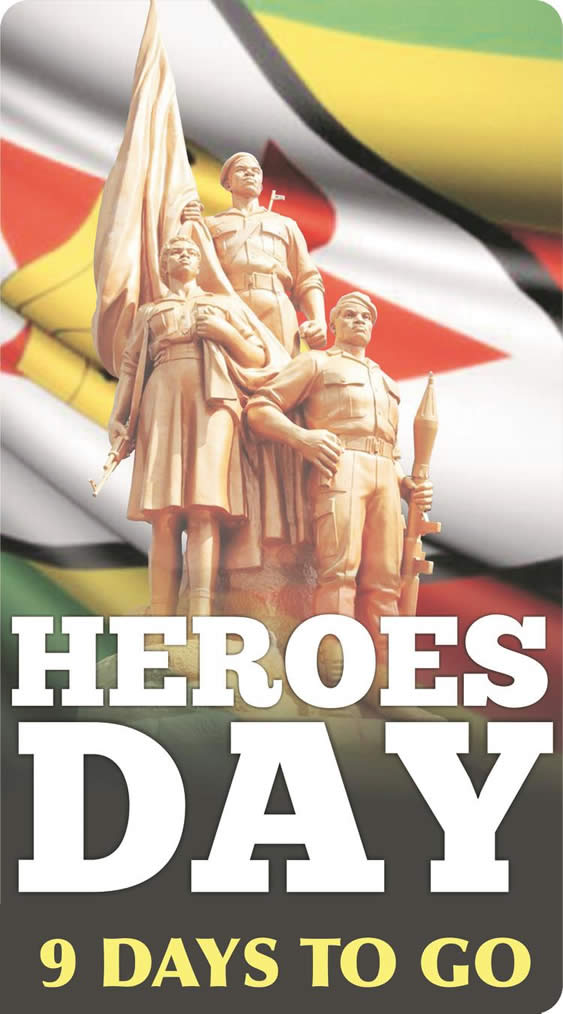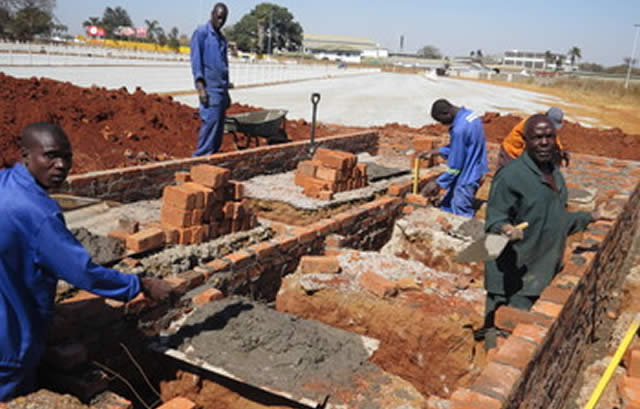Cde Sally was a courageous mother

The first heroine to be buried at the national Heroes Acre, Cde Sally Mugabe died in Harare on January 27, 1992 and was laid to rest on February 1. Affectionately known to many Zimbabweans as Amai, the former First Lady died of a kidney ailment. Born Sarah Francesca Hayfron in Ghana in 1931, she went to Achimota Secondary School before qualifying as a teacher. She met her future husband, President Robert Mugabe at Takarodi Teacher Training College where they were both teaching. With the couple’s marriage in the then Salisbury in April 1961, Cde Sally was immediately embroiled in the maelstrom of nationalistic politics then sweeping Zimbabwe.
Coming from an independent and free country that Ghana was, she was annoyed by open racial discrimination still practised in Rhodesia. Her militant attitude and outspoken aversion to racial and all other forms of oppression compelled her to organise and urge other women to join the liberation struggle. And it was not long before she experienced the wrath of Rhodesian laws.
In December 1961, Cde Sally was charged with sedition and sentenced to five years in jail after she had led a group of women to the Prime Minister’s office protesting against the 1961 Constitution. She appealed against sentence and was restricted to her home in Harare until the hearing.
The appeal court never heard her case because Cde Sally skipped the country and went to Tanzania where nationalist leaders intended to form a government-in exile.
In 1964 she gave birth to their only son, Nhamodzenyika from a pregnancy complicated by Cde Sally’s high blood pressure, lack of proper medical care and political uncertainty then shrouding the struggle.
The Mugabes decided, for the sake of their child, to separate with Mrs Mugabe taking Nhamo to her parents in Ghana while Cde Mugabe returned to Rhodesia where he was arrested and imprisoned on arrival.
Sadly, in December 1966, Nhamodzenyika died of cerebral malaria in Ghana. Cde Sally had to endure the agony of their loss alone as the Rhodesian government refused to release Cde Mugabe to attend the funeral of his son.
Between 1967 and 1974 when the couple reunited, Cde Sally studied and worked in London. She also campaigned and lobbied British Members of Parliament for the release of political detainees in Rhodesia.
As the war of liberation intensified after the arrival of Cde Mugabe and other leaders in Mozambique in 1975, Cde Sally assumed a new role of mother figure and counsellor of the young guerillas coming to Mozambique.
She also canvassed financial, diplomatic and material support for the struggle especially in Scandinavia where she had established a wide network of friends and sympathisers.
At the same time Cde Sally championed the cause tor women’s rights in the rank and file of Zanu-PF. At the first Zanu-PF Women’s Congress held in Mozambique in 1978 she was elected the Deputy Secretary of the Women’s League.
At independence in 1980 and as Prime Minister’s wife, she campaigned for women’s rights and was instrumental in transforming the Women’s League into a formidable force and pillar of Zanu-PF.
Perhaps Cde Sally Mugabe’s greatest and most memorable contribution to Zimbabwe was her tireless devotion to improving the welfare of children and the underprivileged members of our society.
As early as 1981, when she became the patron of Mutemwa Leprosy Centre in Mutoko, Amai Mugabe raised money and donations for the centre and helped erase the society’s stigma associated with lepers.
The needs of children were always at her heart. To that end Amai Mugabe assumed patronage of many children’s centres from those catering for the disabled to those caring for orphans and children of ex-combatants; all the time personally ensuring that thousands of kids have enough food, clothing and shelter.
Amai Mugabe even initiated projects aimed at rehabilitating prostitutes. Her concern for children was rewarded when she was invited to be the Executive Chairperson of the Child Survival and Development Foundation in Zimbabwe. In 1988, with assistance from the United Nations Children’s Fund, she established the Child Survival and Development Committee for Zimbabwe and increased international awareness of the plight of children in Southern Africa.
The resultant response to her worldwide fundraising efforts was overwhelming.
In 1989 Amai Mugabe was elected the first Secretary of the United Zanu-PF Women’s League as well as Secretary for Women’s Affairs in the party’s Politburo.
Source: A Guide to the Heroes Acre









Comments